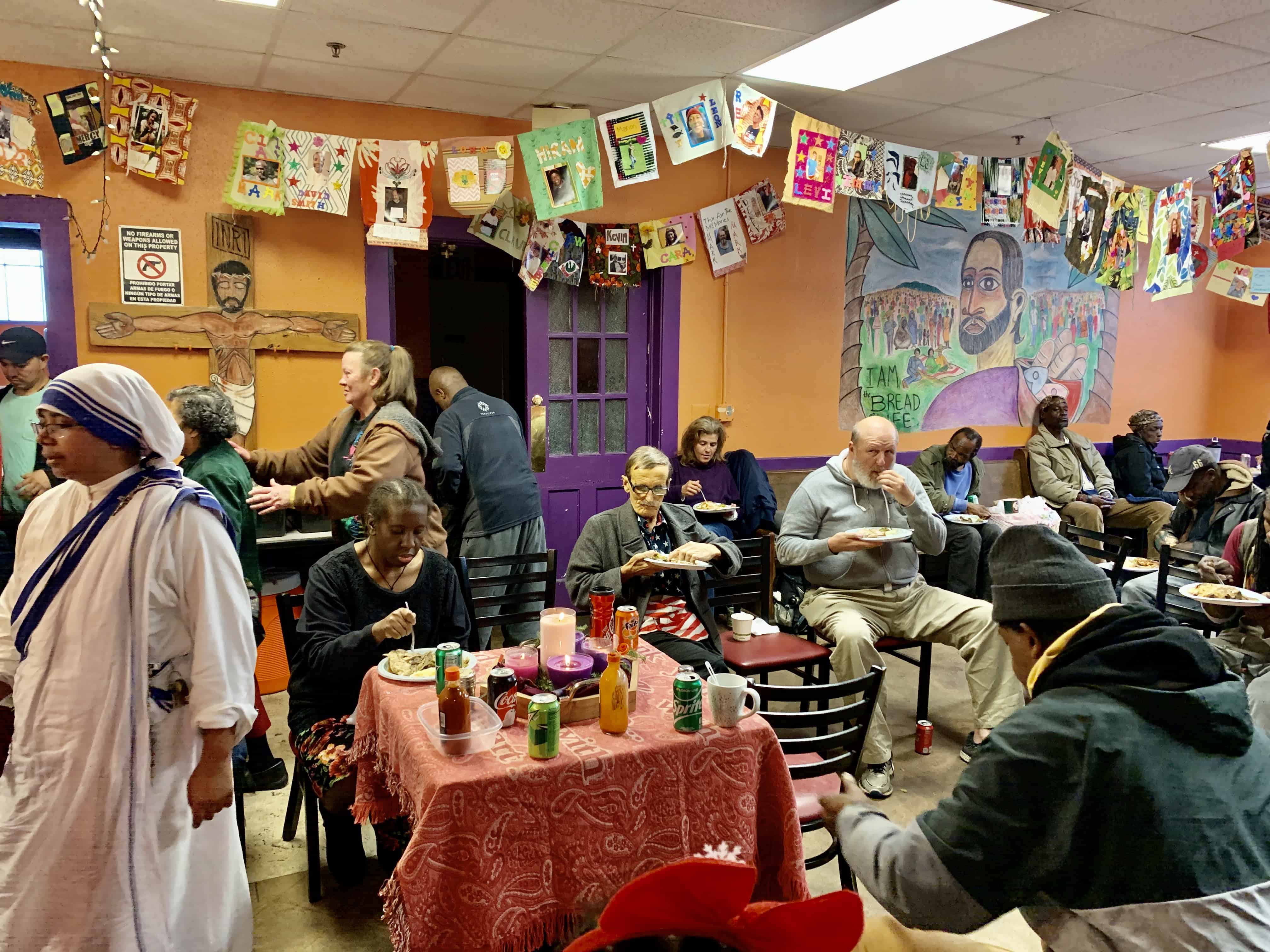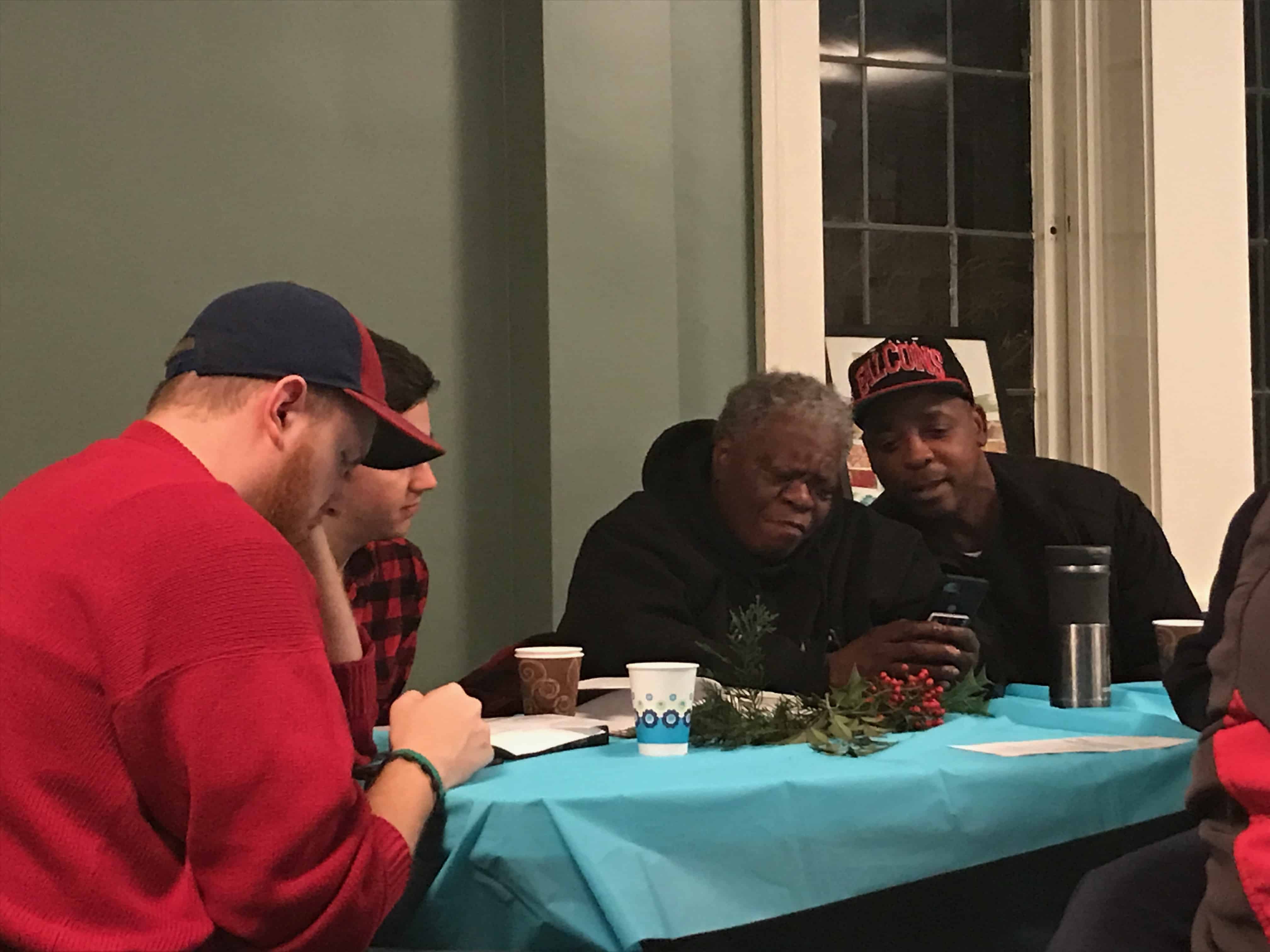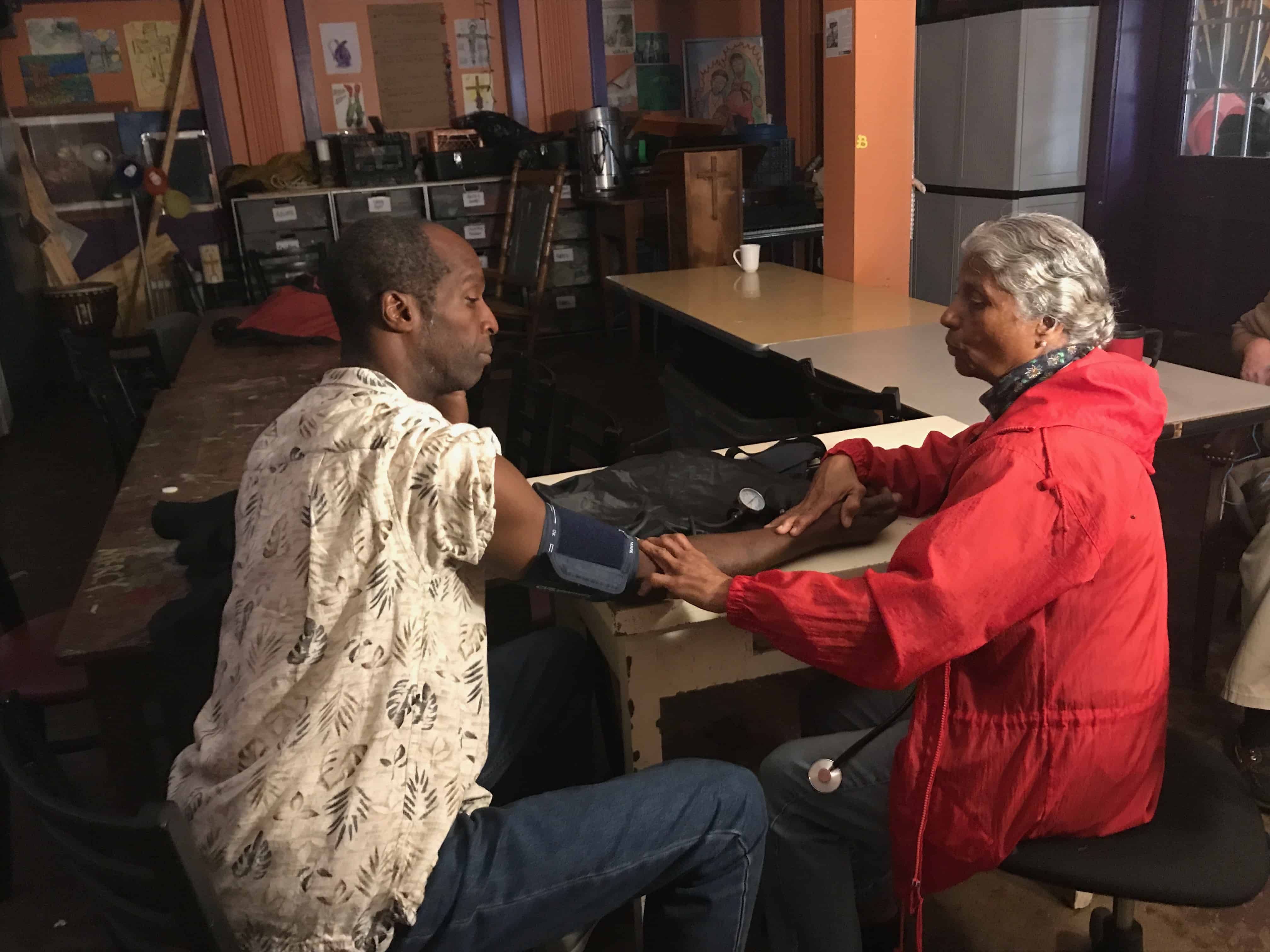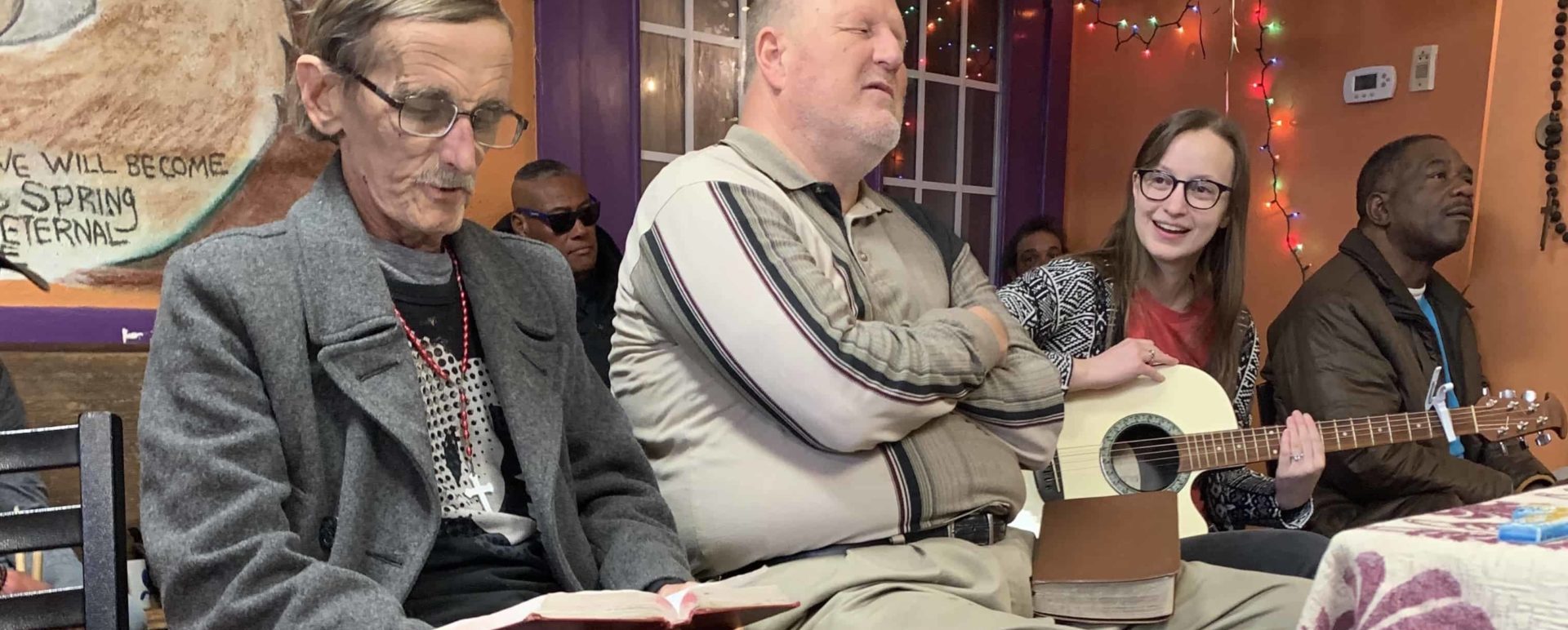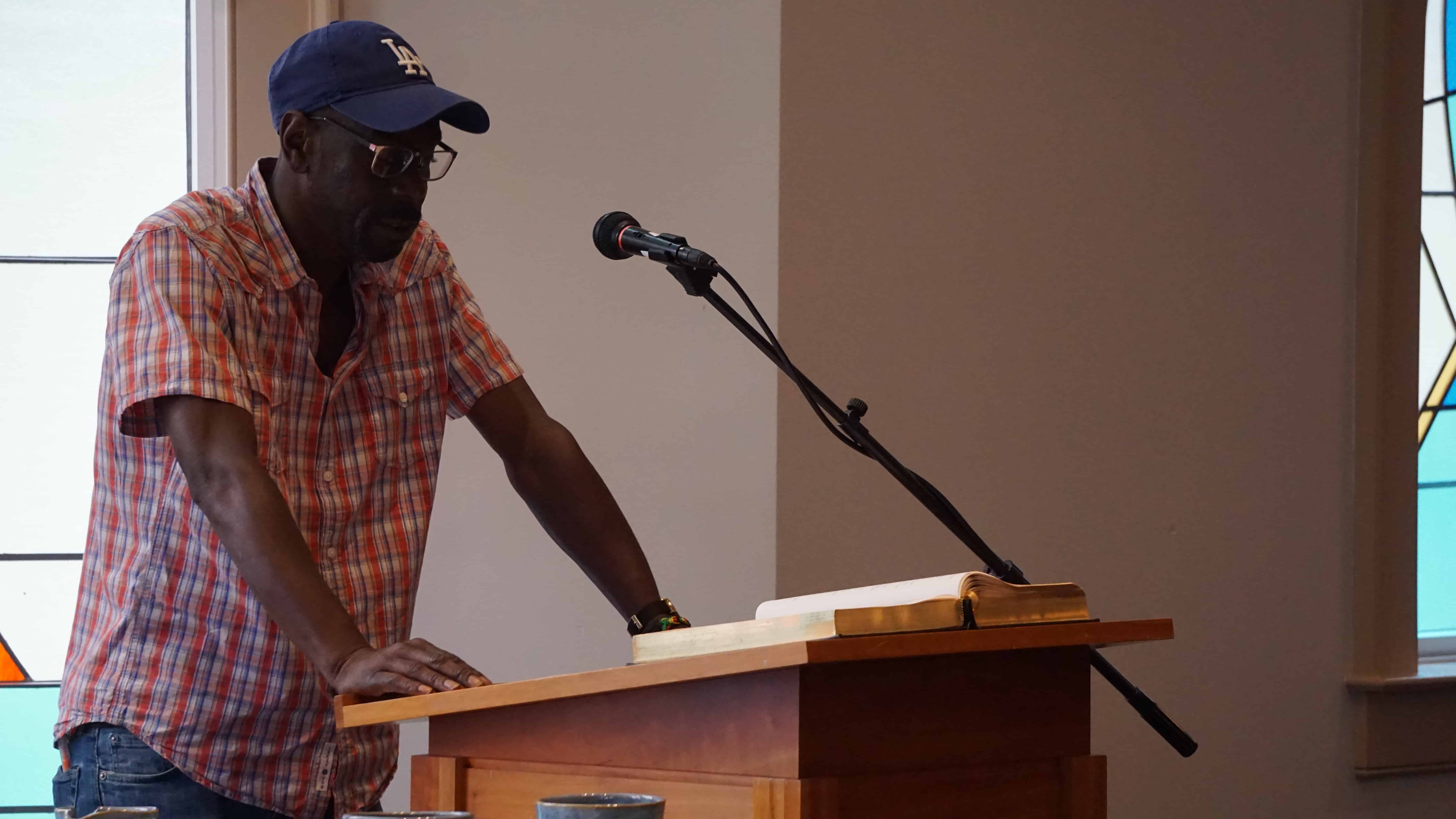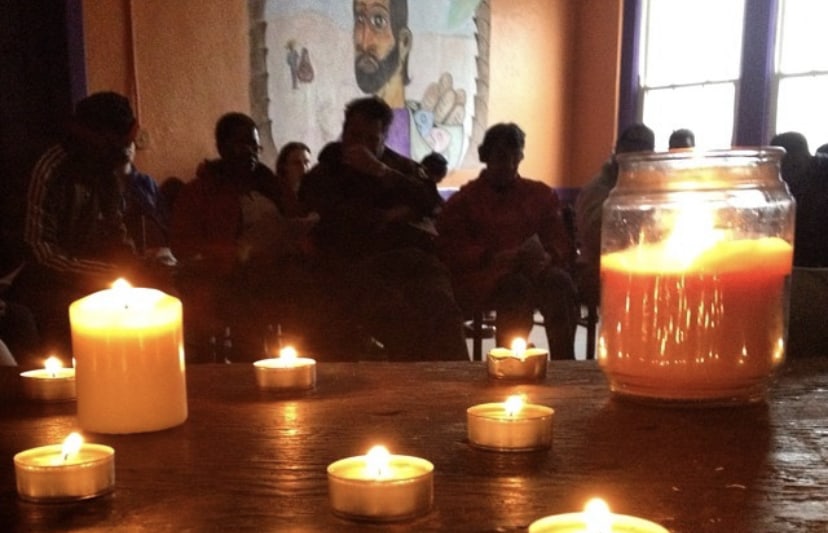by Chad Hyatt
Psalm 121
Reflection—v. 1 ‘where is help to come from?’
When I worked at a nursing home, earning my way through seminary, this verse— Authorized King James Version, of course—was a favorite prayer of one of my coworkers. ‘I will lift up mine eyes unto the hills, from whence cometh my help; my help cometh from the Lord!’ she would cry out on a trying day. Unlike the King James, the Hebrew text probably presents a question before it goes on to its radical affirmation. And it’s not a bad question to ask ourselves. Where is help to come from? The psalmist sets our gaze on the mountains. Here on the city sidewalks, I often look up at the skyscrapers that overshadow us and wonder the same. Both have towering majesty, even beauty. Both can seem so big that we feel small. And if I may be so bold, both can serve as make-shift altars, places we imagine heaven and earth might meet and gods dwell. For our psalmist, such majesty does not possess power enough to save us and altars built there cannot bless. In our own day, systems and institutions that hold sway over us with so much power and pile up promises of help, often disappoint, leading to greater disillusionment and alienation. Sadly, we must confess these include our churches and religious institutions, too. But our psalmist offers us an answer: ‘Help comes to me from Yahweh, who made heaven and earth.’ Here mountains don’t matter. And neither do our modernized Babylonian towers. The God who made everything— mountains included—is the one who is our saving help. This powerful proclamation invites us to ground our faith deeper than the mountains—deeper, indeed, than all that is—and to nurture radical hope in the God of creation and liberation.
Prayer: Yahweh, bigger than mountains, our hope is in your liberation.
Sunday, March 8
by Chad Hyatt
Psalm 121
Reflection—v. 3 ‘the one who keeps you will not slumber’
The pastor didn’t sleep much that night. She was too alert to rest as she kept ‘watch o’er her flock,’ not unlike certain shepherds on a Christmas night long ago. But the sweet song of angels didn’t reward her vigilance. Instead, a chorus of antiphonal snoring and the persistent percussion of footsteps en route to the restroom announced the good news on this evening. For those nocturnal sounds could mean only one thing: her sleepless night had helped create the space for forty other souls to rest warm and safe—for one winter night at least. This psalm describes in tender detail the attentive care of our pastoral God, and hers is the image I call to mind. God isn’t asleep on the job. She’s watching over us, whether we’re sound asleep or wide awake, coming in or just about to head out. Our song, ‘Jesus Is a Sanctuary,’ explores this theme of a God who is the faithful refuge of her people. Singing it, we remind ourselves that God is indeed our shelter and sanctuary. But we also remind ourselves that we are called to provide space for one another that is both sacred and safe. Jesus is indeed a sanctuary, but we are his body. As we ponder penance this Lent, let us repent of doors that are closed and sanctuaries that sit empty on cold nights, of pews and carpet that are unstained by human need, of policies and liability concerns that take the place of moral discernment and compassion. And let us give thanks, too, for churches like our partners’ that open their doors and for so many, like that pastor and countless other volunteers from many churches, who hear the call of the God who tenderly watches over her people, by day and by night.
Prayer: God who never rests in your constant care for us, help us to care for one another always
Saturday, March 7
by Hiram Evans
Psalm 32
Reflection—v. 6 ‘…let all who are faithful offer prayer to you.’
One time, I was at the doctor’s office, and I felt like the doctors and nurses were mean to me. I told them I was on drugs and when they actually saw the drugs in my system, they were like, ‘Get him out of here; he’s nasty!’ But God wouldn’t do something like that. It angered me when they wanted me to get out. It hurt. People can be really mean. But when Jesus is speaking to us in parables, he’s breaking things down in a different way and sends a different message. Jesus is encouraging our words to become actions. He’s making things happen. And Jesus wants us to be near him—he wouldn’t tell us to go away. Sometimes when I’m praying, I think God might say to me, ‘Well, Hiram, you’re doing things you said you were going to do, but you’re also sometimes going away from what you say.’ Sometimes I feel like I’ve got the faith that God gave me, but then when you go back out on the streets, or back out at Catch-Out Corner, your mind can start to wander and you only see the things that God’s not going to do for you. But as we often talk about here in Bible Study, God loves the people who hunger, and the people who are sleeping under bridges—he loves us, whether we make mistakes or don’t, he loves us! Because, the truth is, we’re going to goof up sometimes. We goof up just about every day. The thing with me is that I’ll pray and then the devil will intervene with my mind. So, how do I keep that same prayerful mindset out on the streets? How do I change my heart to be right as well as my mind?
Prayer: God who loves us, in this season of mindfulness, let my heart be turned to you, wherever I am.
Friday, March 6
by Holly Reimer
Romans 5:12-19
Reflection—v. 16 ‘but the free gift following many trespasses brings justification.’
God’s gift of grace is not part of a transaction, wherein we are to offer God a sacrifice, some flowers, or buy God something, as recompense for our wrongdoings. There is nothing I can do that will make me worthy. Only God can justify us, and God does, through Christ Jesus. This is the free gift that this passage speaks of and what we experience in our lives with Jesus Christ. I am going to make mistakes and mess up. The justification that God offers comes even after I do all of the things that I believe should have excluded me. We live with a lot of shame and self-loathing, in part because we are told that who we are and what we do supersedes our belovedness. ‘If only they really knew’ is what I so often tell myself in moments of self-loathing and negative self-talk. God knows, and God loves! For the things that we can’t do on our own and for ourselves, God says, ‘Here, take my hand.’ This is the true grace and love we get to experience in Christ Jesus. God does not desire us to live in shame, crushed by guilt or self-loathing. God’s free gift (yep, really free!) is more than anything we have ever experienced on this earth.
Prayer: Help us, O Lord, live into the free gift of your love and mercy that brings us closer to you.
Thursday, March 5th
By Holly Reimer
Psalm 32
Reflection—v. 3 ‘While I kept silence, my body wasted away through my groaning all day long.’
Certain kinds of silence can make us unhealthy. Staying silent can keep us so focused on whatever we are trying to hide that we can’t focus on anything or anyone else. We brood. We stew. It leads us to violence and anger and hatred. Self-loathing is far too common for many of us, when we keep silent about transgressions or fears of our own goodness. Self-loathing festers to the point where we become so depressed that we feel paralyzed. I love that the psalms can be a place where the psalmists feel that they can air grievances with God. They don’t have to keep silent, but can speak up in a way that brings freedom, a stronger relationship, and the understanding of trust. Destructive silence not only keeps us in bondage but imprisons those with whom we engage. It severs the potential for healthy relationships and the possibility of respecting both ourselves and the other as beloved and capable of receiving both the good and bad of living in relationship.
Prayer Lord, help us to be better communicators with you and with others.
Tuesday, March 3rd
By: Holly Reimer
Psalm 32
Reflection—v. 1 ‘The one whose wrongdoing is forgiven, whose sin is covered over, is truly happy!’
I am a perfectionist and a people-pleaser. I want to do everything correctly the first time and make sure no one is ever displeased with me. It doesn’t matter how many times I am told that I can’t be perfect and I won’t always get it right, I am determined to be the best and never make any mistakes. Then, of course, there is the shame when I don’t get it right. Shame is one of those things that follows us, particularly in faith and in the church, when we speak of sinfulness. God does not want us to live in shame, beat-down because we are inevitably going to get it wrong. God wants us to be happy and well. True happiness is not never making mistakes or ensuring that no one is ever displeased. True happiness is in finding peace within ourselves and knowing that we don’t have to get it ‘right’ all the time. We often have conversations about relationships at Mercy being ‘mess-up safe.’ In other words, we will inevitably make someone mad, hurt someone’s feelings, or just generally mess up. However, as with God, there can be forgiveness and healing when those things do occur. Knowing that I have a space where it is safe when I mess up—because yes, even pastors get it wrong—brings me joy. It’s not that everyone is happy with me all the time, because they are not. It isn’t because I’ve not made a mistake; I have. It is because there is a process where I acknowledge that I will not always get it right and I will not always make folks happy. It is a process of being my best self. And that is true joy.
Prayer: Lord, help us to see that true happiness comes from you, and is free from guilt or shame.
Monday, March 2nd
By: Holly Reimer
Genesis 2:15-17, 3:1-7
Reflection—v. 1 ‘Did God really say…’
All of the passages from this week’s lectionary readings speak highly of God’s great love for us, and the ways that God is in relationship with us. Relationships, whether we like them or not, are a part of our everyday lives—we are in relationship with God, others, and ourselves. When we are in particularly healthy relationships, we are in good communication, actually listening and speaking with one another. Healthy relationships are free from gossip. They are also free from triangulation, where rather than engaging an individual directly, we pull someone else into the conversation. This is the case in the conversation between the serpent and the woman regarding God’s relationship with her. God is absent from the conversation. Yes, they are talking about God, but God is not invited into the conversation. God’s words have been perverted and manipulated in such a way that has excluded God, robbing the serpent and the woman of a potentially rich engagement with God.
Prayer: Help us, O Lord, to communicate well with one another and with you. Make us mindful of the ways that we can be better communicators.
Thursday, February 27th
By: Ivan Cooley
Matthew 6:1-6, 16-21
Reflection—v. 5 ‘do not be like the hypocrites’
Usually when I come home I turn on the TV. Until the other day when I turned on the TV and it was dead. I panicked, because what was I going to do without my TV?! When I get on the train, I guarantee that 60-70% of the people around me are looking at the screen on their phones. I’m amazed at how many people are addicted to their screens. But then when my TV went out, I had to admit that I was addicted to a screen too! But then I started playing my music. Since I had gotten the TV I wasn’t listening to music near as much. I couldn’t concentrate on the music because I wanted to watch TV. The next day I was downtown walking and there on the sidewalk were some speakers—I took them home, plugged them into my phone—it worked! The music was sounding good! Oh, I see what I’ve been missing now! At first, when the TV went out, in the quiet, I started thinking thoughts that I didn’t want to, but then after a while, my mind let that stuff go, and I noticed that it wasn’t that bad without the TV. I had to give up the TV. It wasn’t my choice, but I believe that God leads us. When I could hear my music again, I began to hear other things. I could hear good things in my head for a minute, and then even when I turned the music off, I knew I was going to be alright and my mind went to a different place. What I thought was going to be a bad thing, God showed me, might be what I needed. Peace is a good thing.
Prayer Lord, sometimes I’m a hypocrite; in your mercy, help me to look at others with the same love you look at me.
Ash Wednesday, February 26th
By: Chad Hyatt
Matthew 6:1-6, 16-21
Reflection—v. 1, ‘Beware of practicing your righteousness’
I’m a pretty weird guy—I really love Ash Wednesday and Lent. I love the smells and bells when we gather with other neighborhood churches. I love the imposition of ashes and the chalky black crosses that paint our foreheads. I love coming to the table to share with one another in the bread and wine that is the body and blood of Jesus. And I really, really love the theme of penance. It’s old-fashioned and cringe-worthy enough of a word to make us ill at ease—and yet radical enough to invite us to serious transformation. Francis of Assisi often described himself as just a penitent. Think about it: one of the most beloved holy people in all of history thought of himself as living a life of constant turning from sin. That makes me feel that real holiness is actually about practicing it— which, for me at least, would have to include a lot of messing it up along the way—and not about some idealized version of being human that is pretty much out of our reach. But I wonder if we haven’t allowed penance to become too church-y. We might come closer to what Jesus was talking about if our repentance was less religious and more real world, less bourgeois aspirational ‘spiritual growth’ and more righting and repairing our relationships with other human beings and creation. Jesus commends alms-giving, prayer, and fasting not as status-driven virtue-signaling but as ways to widen the capacity of our hearts for doing right by our neighbor and realizing the kingdom of heaven in the here and now. I think that’s a kind of weirdness our world could use a little more of.
Prayer Jesus, help us always and ever to turn toward you—in our streets as much as in our pews.

